Azerbaijan's economic maturity test - ANALYTICS
- 26 September, 2025
- 15:29

Azerbaijan has been associated primarily with oil and gas production and export for decades, which largely determined its economic model and international positioning. But the changing reality of the global economy, energy transition, and competition for new sources of capital are directing the country in a different course.
Against this backdrop, the first Azerbaijan International Investment Forum (AIIF 2025), held in Baku, was not just a showcase of projects, but a demonstration of the country's new economic philosophy.
The forum showed: Azerbaijan is approaching investors not only with oil and gas, but with a multi-sectoral set of opportunities - from renewable energy and transport to agriculture, tourism and the digital economy. In other words, it's not about simply seeking capital, but about an invitation to long-term and sustainable partnership.
Thus, Azerbaijan has done something that raw material exporting countries rarely manage to do: it turned an investment forum into a platform for discussions not only about oil, but also about how the economy is being built beyond it.
The two days of the First Azerbaijan International Investment Forum showed how the architecture of the economy is changing - from megaprojects in renewable energy to attempts to integrate the country into new trade and digital chains.
AIIF in cross-section
The AIIF 2025 forum showed that Azerbaijan is ready to present investors with a wide range of investment areas. The topics were so broad - from green energy to creative industries - that one article is not enough to list them all. Therefore, we will limit ourselves to the most striking examples where the new logic of growth is visible.
Oil and gas sector
Energy Minister Parviz Shahbazov reminded that 540 million tons of oil have already been delivered through the Baku-Tbilisi-Ceyhan pipeline. But the main point was that hydrocarbons are becoming a "guarantee" for financing the transition. SOCAR simultaneously announced plans to develop offshore wind energy and even geothermal energy.
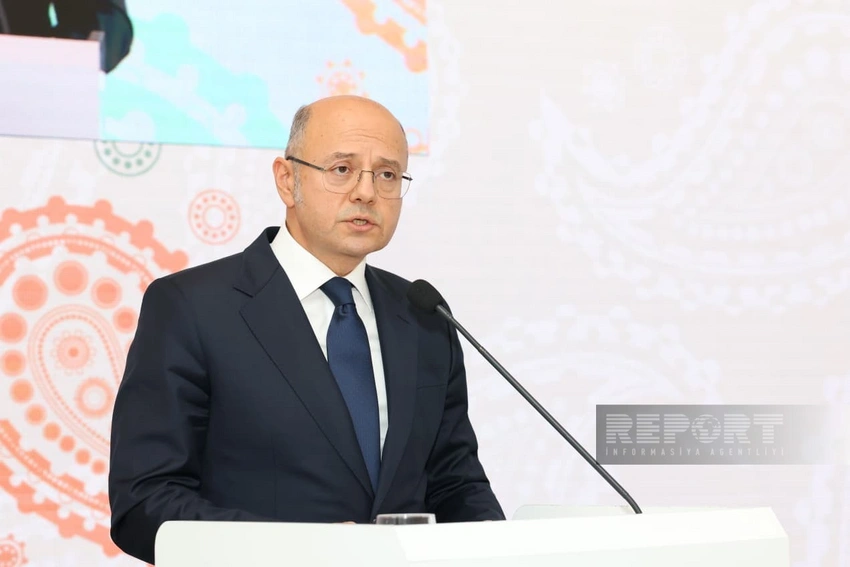
The topic of green energy has been receiving a lot of attention lately. Masdar, ACWA Power, and BP have presented here.
"Azerbaijan's resource potential in the field of renewable energy significantly exceeds domestic needs," noted ACWA Power's head for Azerbaijan and Türkiye, Selim Guven. By 2030, the share of renewable energy sources should reach 38% of the total energy balance.
Transport and logistics
The World Bank forecasts: by 2040, trade through the Middle Corridor will increase by 150%. The Minister of Digital Development and Transport Rashad Nabiyev announced a new cargo airport in the Alat Free Economic Zone by 2027. This strengthens Azerbaijan's position as a key transit hub.
Agriculture is ceasing to be a traditional sector and becoming a point for creating clusters with high added value. Minister Majnun Mammadov emphasized that fruit exports increased by more than 40% this year. At the same time, the agricultural sector continues to enjoy various tax benefits, duty-free import of equipment, and export incentives.
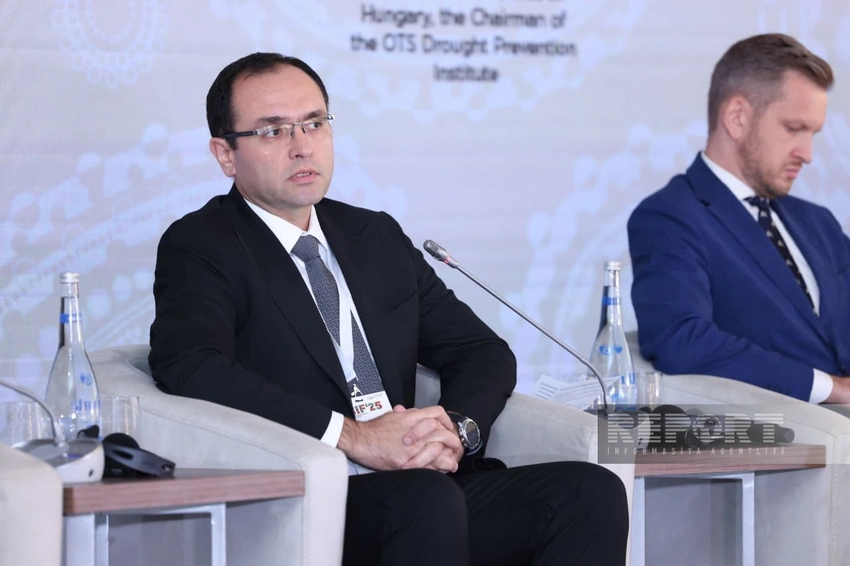
Karabakh and Eastern Zangazur - a unique "blank slate" for development. "General plans for 12 cities in the region have already been prepared, three airports and more than 4,000 km of roads have been built," said the head of the State Committee for Urban Planning Anar Guliyev. Green energy zones and industrial parks are being created here, turning the region into a laboratory for new urbanization.
Industrial projects are becoming long-term sources of growth. This is a step towards creating a more complex economy, where value is formed not only at the time of construction, but also in services, exports, and integration into global chains.
Tourism and healthcare complete the picture. The Sea Breeze project with international networks IHG, Radisson, and Accor puts the country on the map of global wellness and medical tourism.
Azerbaijan after oil: a new framework for discussion
Usually, oil powers resort to rhetoric about diversification, but not specifics. In Baku, however, the conversation turned to agriculture, transport projects, green corridors, and data centers, with agreements signed for more than $10 billion, $7 billion of which are contracts in the non-oil and gas sector. This amount exceeds the usual annual volume of foreign direct investment.
The forum made it clear: oil for Azerbaijan is now more of an insurance policy than a strategy. The real bet is on new industries and growth vectors. The institutional view here is unequivocal: Azerbaijan is trying to cement three "pillars of trust" - macroeconomic stability, infrastructural connectivity, and predictability of the rules of the game. Yes, risks remain - from global supply chains to competition for capital in the region - and no one is hiding this.
However, Baku speaks to investors in their language, moving away from abstract intentions towards specific figures, conditions, commitments, project roadshows, public-private partnerships (PPA) for green energy, off-take agreements, institutional KPIs for state enterprises, and so on.
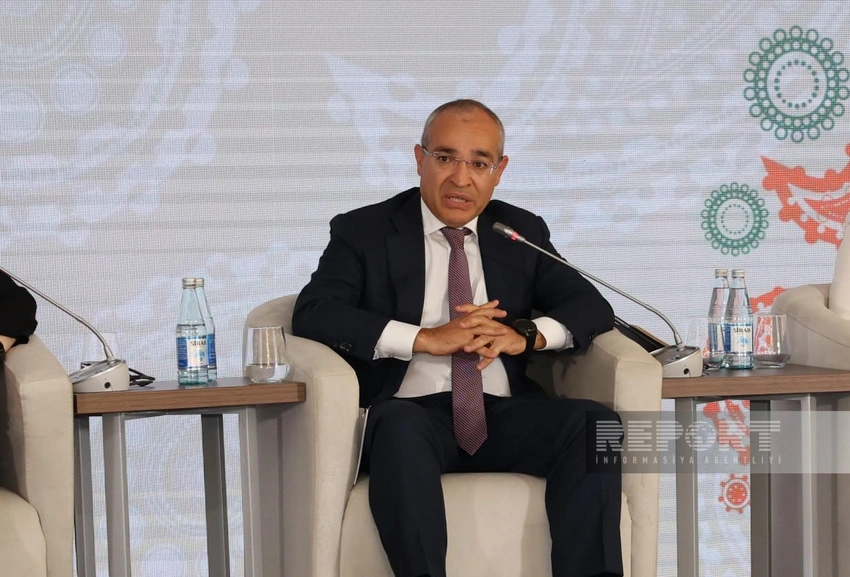
"One of our distinctive features is that our country not only invites local and foreign investors to establish businesses in Azerbaijan, but is also willing to share risks," said Mikayil Jabbarov, Minister of Economy of Azerbaijan.
This is very noticeable and makes the forum a turning point: Azerbaijan has ceased to be seen as a market for "quick" investments.
It has established itself as a new center for long-term capital, where commodity revenues serve as the key to diversification, and risks are shared between the state and global institutions. Here, the combination of macroeconomic stability and structural shifts within the economy itself plays a decisive role.
Pillars of Trust: Macrostability and Institutions
Over the past seven years, Azerbaijan has made significant progress in several areas of the Global Attractiveness Index 2025, developed by the forum's strategic partner, The European House - Ambrosetti. The country improved its position by 110 points in the dynamism subindex, by 18 points in resilience, and by 13 points in future readiness. Azerbaijan now ranks first among Central Asian and Caucasus countries in these three indicators. For investors, the bottom line is this: the country has accelerated precisely in areas where growth is typically directly linked to project profitability and resilience to external shocks.

Political stability, a sustainable macro-environment, low government debt at 20% of GDP, and State Oil Fund assets of over $60 billion can confidently provide Azerbaijan with an opportunity to reduce the Country Risk Premium and create space for long-term investments. This allows consideration not only of one-time construction contracts but also projects that form an ecosystem of income for decades to come.
Infrastructure as a catalyst for ecosystem revenues
Investors often prefer projects that bring value not only at the time of completion but also in long-term operation - from services and maintenance to integration into international markets. While an EPC (Engineering-Procurement-Construction) project provides limited profitability tied to a fixed contract and strict deadlines, models we can conditionally call "assembly - service - integration" open up several additional levels of profit.
First, they involve localizing the production of components and equipment, which creates employment effects and a tax base.
Second, the service component forms stable cash flows after the facility launch - whether it's maintenance of power plants, IT infrastructure, or agro-processing complexes.
Third, integration provides access to international value-added chains - from the export of metals and glass to participation in regional logistics corridors.
Unlike traditional EPC contracts, where the project is delivered turnkey, the profitability of such projects is significantly higher and has a multiplicative effect. The growth in population welfare enhances this effect. Since 2000, gross national income per capita has increased almost sevenfold - unlike the global average of 2.8 times. Such growth creates a demand base for housing, medicine, tourism, digital services - precisely those segments where the business model is built on recurring payments, not on a one-time facility delivery.
The complication of the export structure is also becoming a signal for investors. Yes, oil and gas remain dominant, but in recent years, non-resource goods and high-tech have shown the greatest dynamics. This means that projects in integration and services have a higher probability of embedding into global value chains, and therefore - higher potential returns.
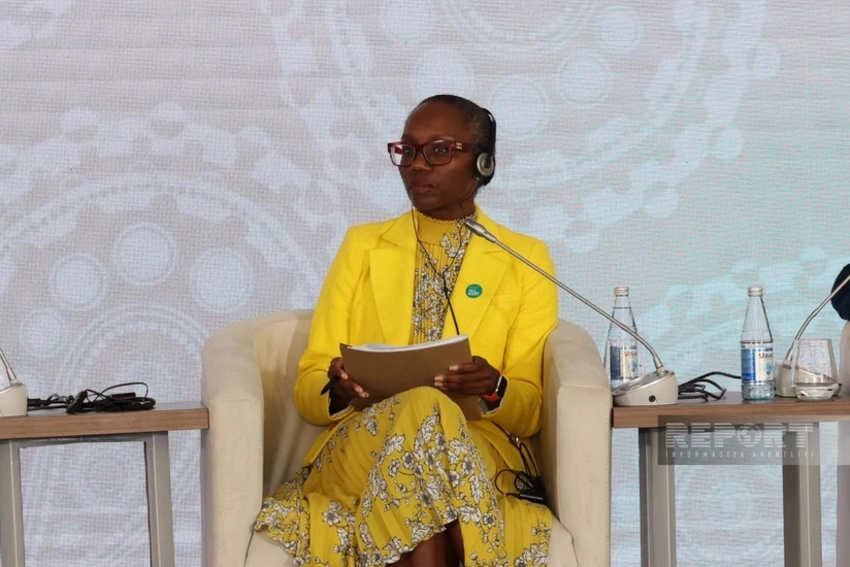
"The Middle Corridor is rapidly becoming a key multimodal trade artery connecting East Asia with Europe. According to our estimates, by 2040, trade in the corridor economies will grow by 150%," - Rolande Pryce, Regional Director of the World Bank
This means that new infrastructure corridors will also change the economic map of Azerbaijan. The Middle Corridor, Black Sea "green cable", Alat Free Economic Zone - all these form the basis for service business models: logistics, e-commerce, data centers, agricultural processing. For investors, this is an important marker indicating that infrastructure is no longer just a construction task but is becoming a catalyst for ecosystem revenues. The institutional layer complements the picture.
Tax and customs benefits for industrial zone residents, various business incentives, joint funds with international institutions, participation of export agencies and Islamic financial organizations reduce the cost of capital and distribute risks. As a result, projects with long lifespans benefit the most - from water PPPs to urban developments and industrial parks.
Collectively, these factors give investors a clear sense that Azerbaijan is no longer a market for one-time EPC deals. It is transforming into a space where value is created not only at the moment of construction but also in the years of operation, service maintenance, and integration into global markets. This is why multipliers for such projects here will grow faster than in the traditional resource-based logic.
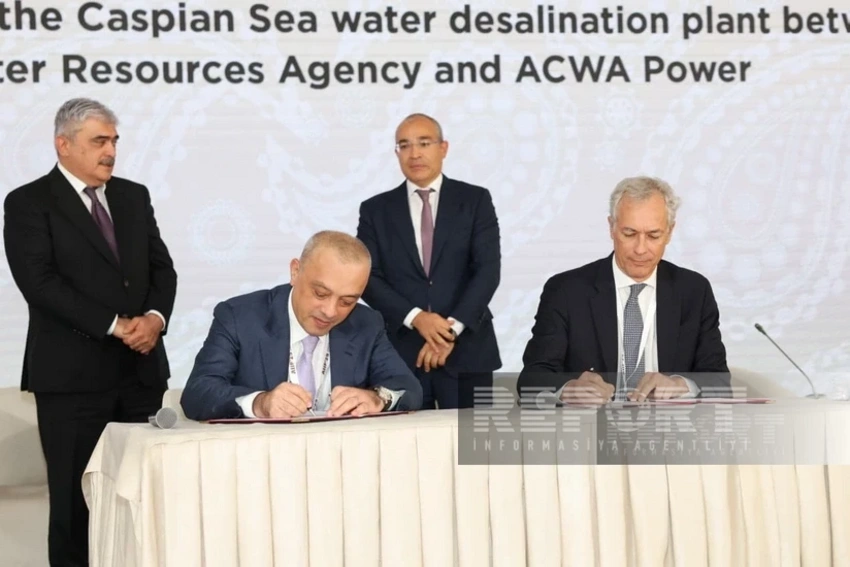
A striking example of this are the contracts signed within the framework of the forum. For instance, the signing of an agreement with ACWA Power for the construction of a seawater desalination plant worth more than $400 million. The project is being implemented as a public-private partnership. Here, not only the EPC construction phase is important, but also long-term service contracts for operation and water sales. The project is integrated into the water security system, which means stable demand and regular cash flows. Or another contract with Modon Holding for the implementation of the "City within a City" project ($5 billion) around Lake Boyukshor. The project involves creating an entire ecosystem around the lake: housing, services, commercial facilities. Here, recurring profit is generated through rent, property management, services, and other instruments. Such a project is precisely a "portfolio approach" with a long lifespan. The reason is that the economy is gradually shifting from a raw material model to a more complex one - where value is created not only at the construction or extraction stage, but also in the chain of subsequent operations. That is why in Azerbaijan, future multipliers will be formed not around one-time construction contracts, but around industries where there is income repeatability and integration into global markets.
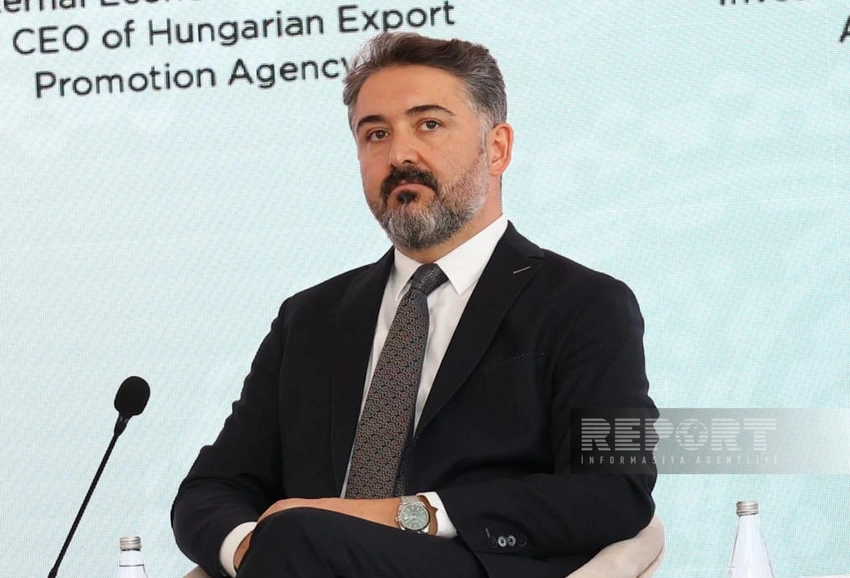
Invitation to play "the long game"
"Azerbaijan is the best country for investments. Its strategic location, predictable economic policy, and rich resource base create unique conditions for business and long-term partnership," - Ismail Ersahin, Executive Director of the World Association of Investment Promotion Agencies (WAIPA) As a result, AIIF-2025 became not so much a showcase of projects as a demonstration of the country's maturity. Azerbaijan showed that it can use oil revenues as collateral rather than as destiny, and offered investors a portfolio strategy where risks are shared and opportunities are scaled. For international financial institutions, this is the language of figures, contracts, and obligations, not rhetoric. For private capital, it's an invitation to play the long game, where oil remains as insurance, while the main growth stories are already happening beyond it.
Azad Hasanli, analyst
